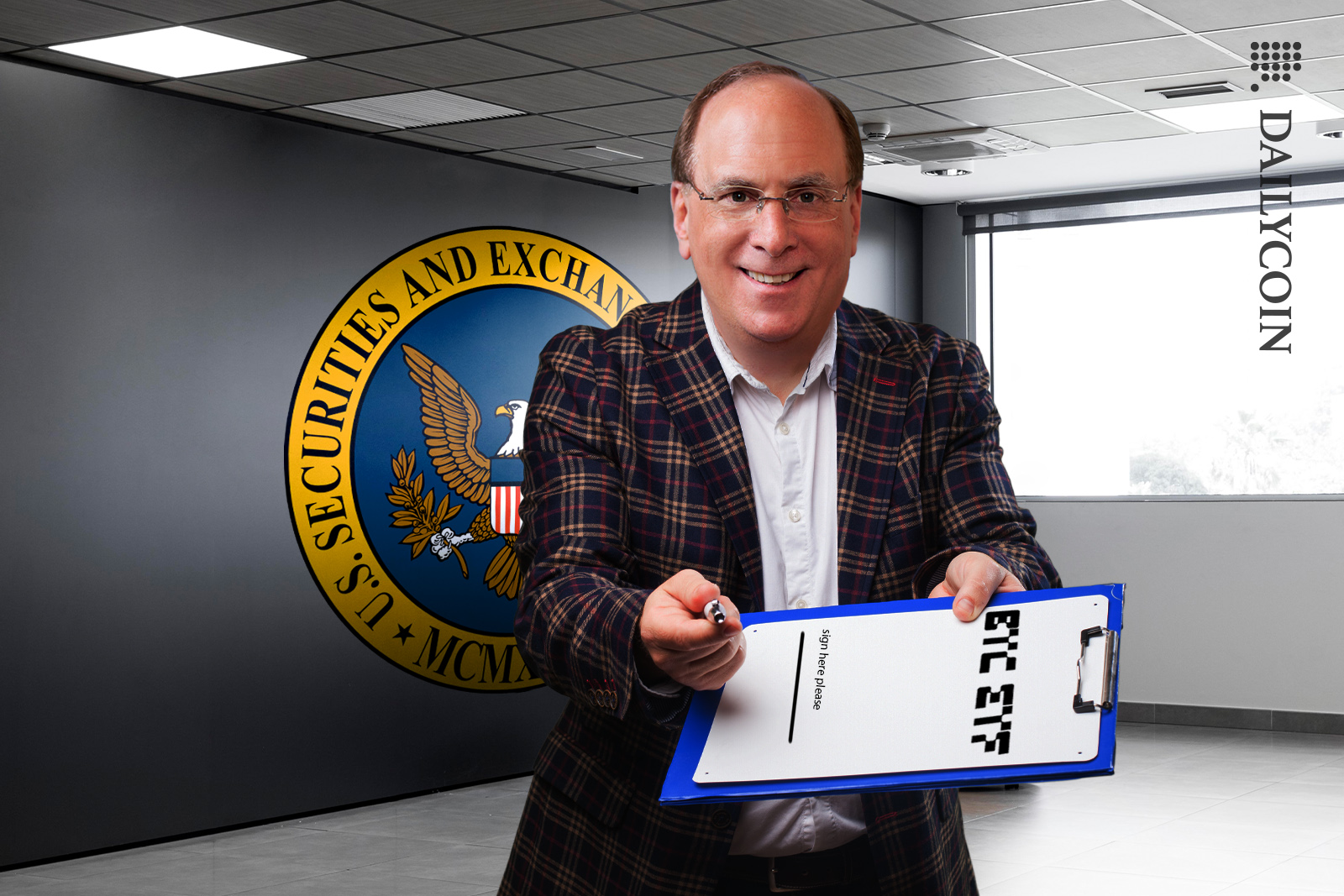
- BlackRock has changed its Bitcoin ETF application to address the SEC’s market manipulation concerns.
- An Expert has described the change as a good sign.
- The next deadline for an SEC decision on BlackRock’s ETF is less than a month away.
In June 2023, the entrance of BlackRock into the Bitcoin ETF race sparked significant hopes of an imminent approval. However, in recent weeks, a tussle between the SEC and BlackRock over the latter’s proposed redemption model sparked uncertainty. Amid the back and forth, BlackRock has compromised to address the regulator’s concerns.
BlackRock Goes Cash Only
In recent weeks, the SEC has made its stance on cash-only creations and redemptions for Bitcoin spot ETF applications clear, following changes from applicants Invesco, Galaxy Digital, and ARK Invest. However, BlackRock had held out, pitching a hybrid model combining cash and in-kind redemptions—till now.
In an update to its filing dated Monday, December 18, BlackRock joined other applicants to yield to the SEC’s demands. The firm revealed that it would also be implementing cash-only redemptions and creations until the SEC would approve in-kind redemptions.
“The Trust issues and redeems baskets on a continuous basis. These transactions will take place in exchange for cash. Subject to the in-kind regulatory approval, these transactions may also take place in exchange for bitcoin,” the asset manager wrote.
The change implies that new shares in the ETF will only be created using cash instead of the underlying asset: Bitcoin. The same will apply to share redemptions.
Sponsored
Responding to the change, Bloomberg ETF analyst Eric Balchunas described it as a “good sign.”
“BlackRock has gone cash only. That’s basically a wrap. Debate over. In-kind will have to wait. It’s all about getting ducks in row bf [before] holidays,” he wrote.
The SEC’s Concerns Over In-Kind Redemptions
The SEC maintains that in-kind redemption models leave room for market manipulation. The view stems from fears that entities with large holdings could influence the ETF value with in-kind redemptions to create profitable arbitrage opportunities from the resulting price disparity with the underlying asset, in this case, Bitcoin.
Sponsored
Despite the SEC’s position, Bloomberg’s Balchunas has argued that the in-cash tax model is less efficient.
“Cash creates are worse for taxes bc cash changes hands vs in-kind is simply a trade and no cash exchanges hands. Thus, cash create only bitcoin ETFs are not ideal and screw up one major advantage of ETF structure. Still better than nothing and hopefully they solve in-kind soon,” he wrote in an X post less than a week ago.
Regardless of the creation model, the creation of ETF shares will lead to increased Bitcoin demand as the asset would still be purchased to hold in trust on behalf of investors.
The next deadline for the SEC to decide on BlackRock’s spot ETF application is January 15, 2024. Investors would hope that BlackRock’s recent compromise would boost the chances of approval.
On the Flipside
- The wording of BlackRock’s change suggests that the firm has not totally given up on in-kind redemptions.
- Aside from the redemption model change, BlackRock also made several other changes to its Bitcoin ETF application, including a terminological change to Coinbase’s role from Prime Broker to Prime Execution Agent.
Why This Matters
BlackRock’s recent compromise to comply with the SEC’s wishes clears a significant hurdle ahead of the January 2024 deadline.
Read this to learn more about the SEC’s concerns:
BlackRock’s ETF Approval Uncertain: What Does the SEC Want?
Learn more about the latest addition to the Polygon ecosystem:
Polygon Welcomes Fuse Network as CDK Adoption Soars

